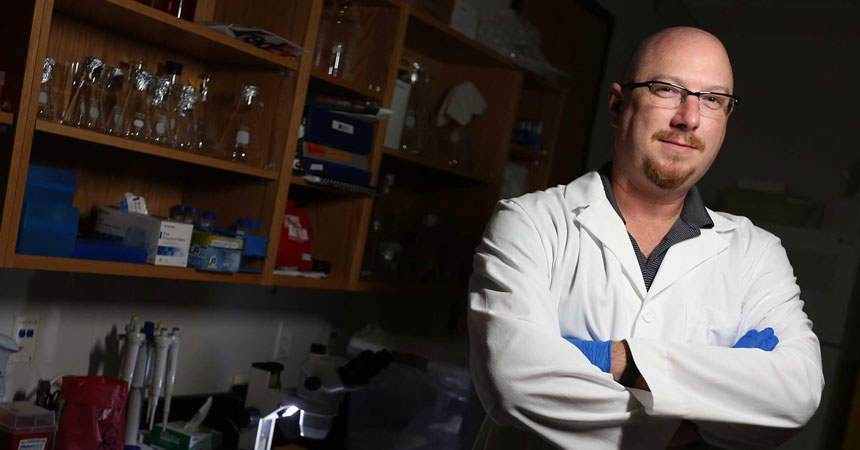A possible hidden reason for ventilator-associated pneumonia
By: Jan Jarvis

Surgical patients who need ventilators to breathe face heightened risks for pneumonia, but detecting the bacteria that might be causing the infection can be complicated.
One reason for the confusion is that bacteria that appear on cultures of the lungs, often labeled “normal respiratory tract flora,” are considered harmless. But they’re not – or they may be indicative of a problem about to begin, said Michael Allen, PhD, Associate Professor of Microbiology, Immunology and Genetics.
The study is featured on the newly launched PLOS One Microbiome site, a forum for peer-reviewed research. It explores one reason why the source of infections for many mechanically ventilated surgical patients has been unclear.
HSC InsiderLearn more about UNTHSC’s people and programs by signing up for the weekly HSC Insider email. |
When a culture is taken, the test results can seem obvious. Confusion often develops when bacteria appear but there are no specific pathogens on the culture.
This implies the flora is harmless and does not need to be treated. But the opposite may be true, said Dr. Allen.
“The culture is typically either negative and not a problem, or it lights up with horrible pathogens and is a serious problem,” Dr. Allen said. “Our data suggest that in some patients the flora in the lungs is in transition to disease or that it is susceptible to an infection. Maybe it’s not there quite yet, but it’s headed that way.”
Ventilator-associated pneumonia is a common cause of death in critically ill patients. Eighty-six percent of hospital-acquired pneumonias are associated with mechanical ventilation. It is estimated that the fatality rate is as high as 60 percent.
Typically, patents have not been treated for pneumonia when the culture showed mixed results with no evidence of pathogens. But the discovery could lead to a change in how the disease is treated.






Social media